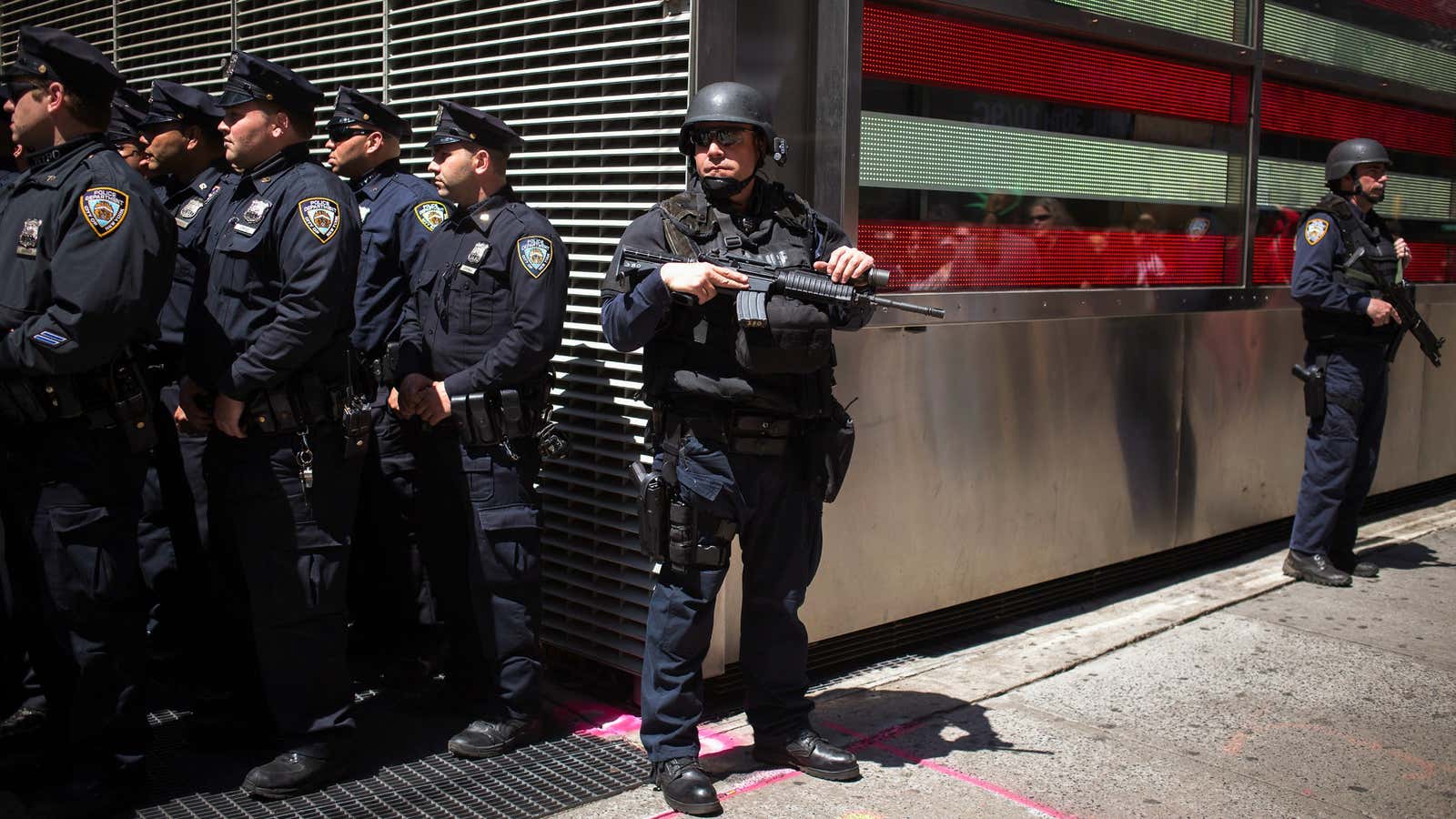In the first season of the popular HBO series, The Wire, police officer Auggie Polk just wants to quit. But he won’t get his pension unless he puts in a few more years. So he tries to throw himself down the stairs.
In the end, he can’t go through with it, but the sentiment behind the ploy—an on-the-job injury would have entitled him to an early retirement—illustrates the problem with the compensation of police and so many other civil servants: the reward and incentive for doing their job is delayed. Their compensation takes two forms: current pay and retirement benefits. The retirement benefits, pensions and health care, aren’t paid until decades from now. Because these jobs are physically grueling the retirement benefits serve an important role. They often allow police and fireman to retire comfortably in their 50s.
But it’s a bizarre equation. The median wage of a police officer is $55,000 and the median wage of a fire fighter is about $45,000. The national average wage is $45,000, but when you account for the danger and skills involved in protection, it seems police and firefighters should be paid more. And they are—it just happens to be in the form of their pensions and healthcare, all of which are valuable. Not only that, in many states, public employees have a constitutional guarantee that their pension benefit will never be cut. That’s worth a lot of money. The present value of a typical pension benefit is about $824,000—many multiples higher than what people in the private sector have in their pension account at retirement. The pension is even more valuable when you account for the presumed certainty that it will be paid.
This is the inherent problem with promising a future benefit to employees instead of paying for it now. It gives politicians every incentive to overpromise, underfund the pensions and take large risks with the pension’s assets. That leaves fire fighters and policemen vulnerable to risks they don’t realize and can’t protect themselves from. Politicians always have an incentive to promise more in the future, but then put the money to more immediate concerns. Even before the crisis, when times were good, 44% of states and municipalities didn’t contribute enough to finance their promises.
While police and fire officials do make large contributions into their pensions, taxpayers pay for at least half—and are on the hook for doing so. Even if the pension asset’s investments lose money, benefits still have to be paid, and the taxpayer is the guarantor of this. While most state plans have enough assets to pay benefits now, in the next 10 years, more than 30 states may start running out of money. Hard choices will have to be made: cut benefits, raise taxes, provide fewer services like education, or shrink the size of the municipal work force, including fire and police, who might lose their jobs.
In the past state and municipal employee unions agreed to forgo pay raises in exchange for more generous pensions. Many police and fire officials aren’t covered by Social Security, so the pensions are all they have. They would be better off being paid a higher salary instead and replacing their pension with a generous individual pension accounts like a 401(k) or a 403(b). Individual accounts have problems: assets don’t always perform well, people don’t save enough, make bad investment choices, and pay too much in fees. But offering cheap and well-diversified investment options and sensible defaults addresses some of these concerns. At least with an individual account, the risk is transparent and who owns what is clearer.
Front-loading compensation, by paying what you promise today, improves everyone’s incentives. If it were possible to freeze the old pensions and increase police and firefighters’ current pay (a higher salary and generous contribution to their pension account) that would force the government to realize the true cost it promises. If government can’t pay for it, it shouldn’t offer it. Front loading pay also eliminates incentives for fire and police officials to stay in their jobs longer than they’d like—or is productive for society. It also gives them less reason to throw themselves down stairs.
